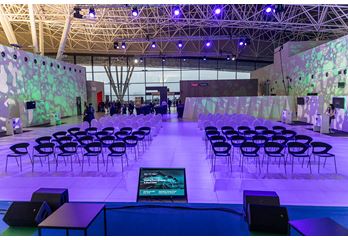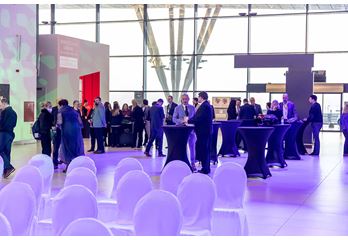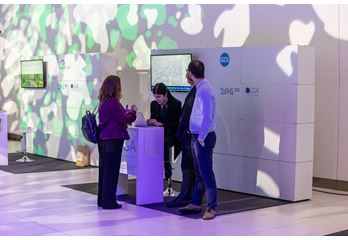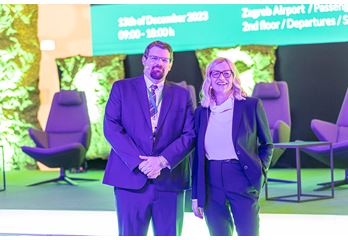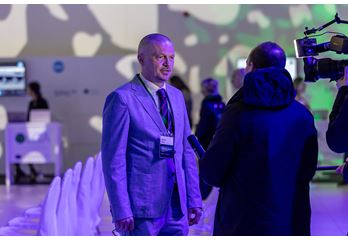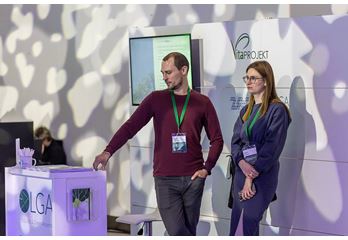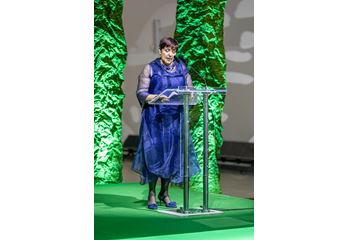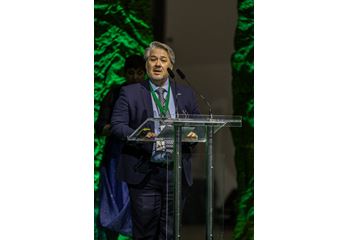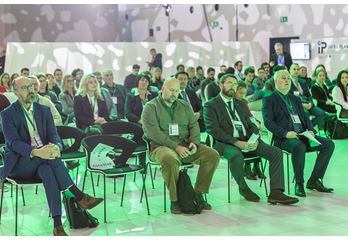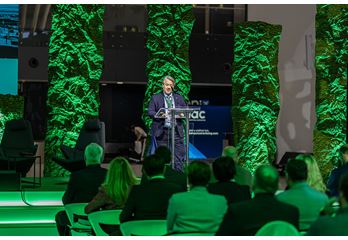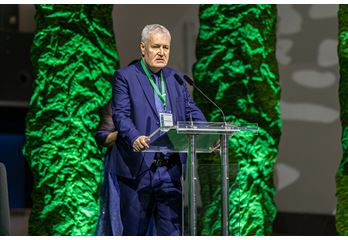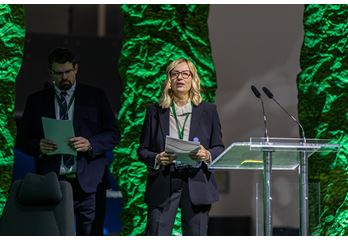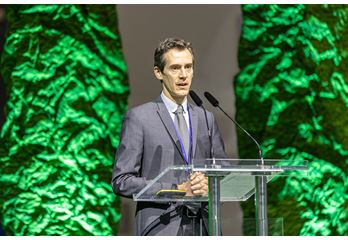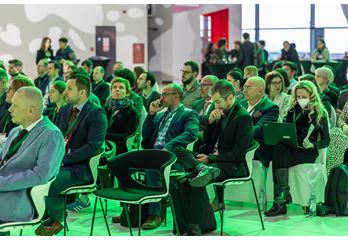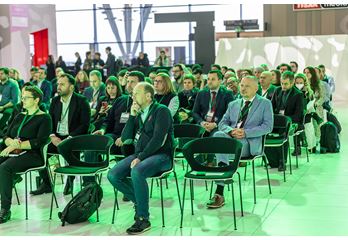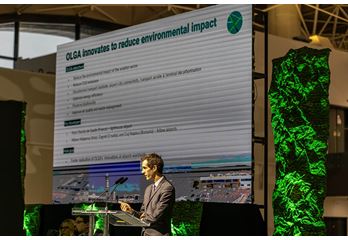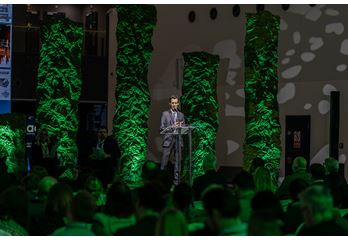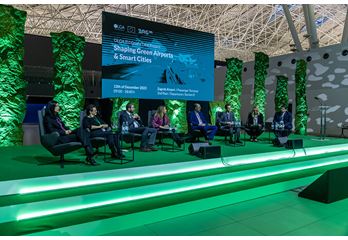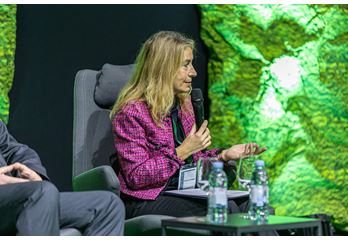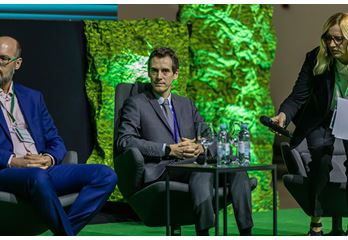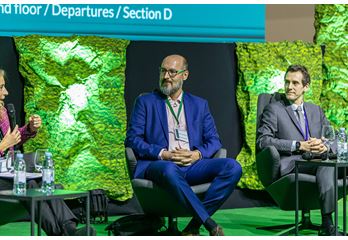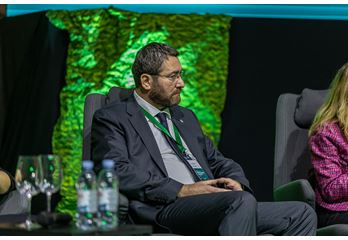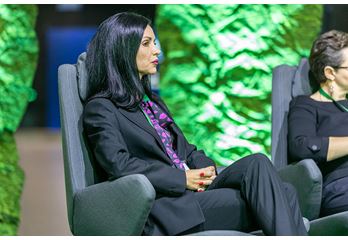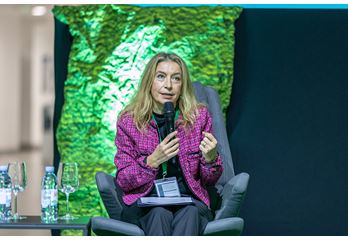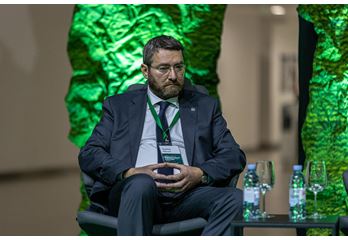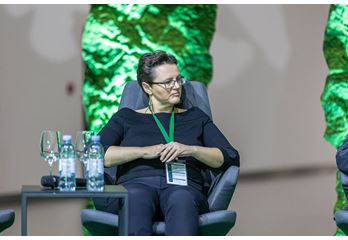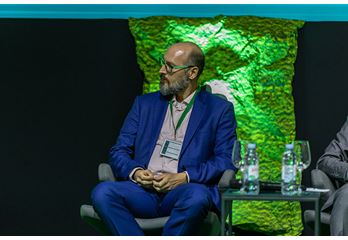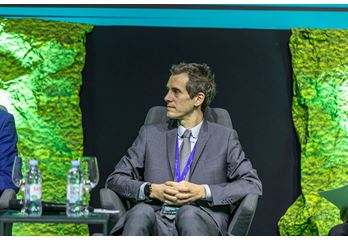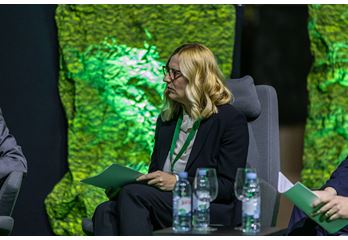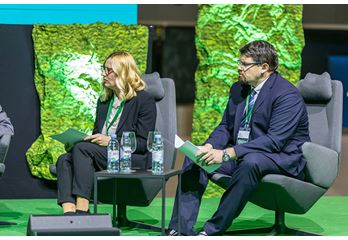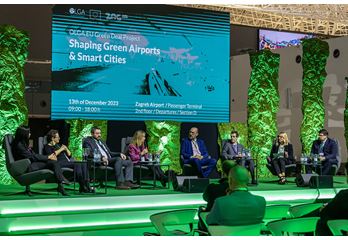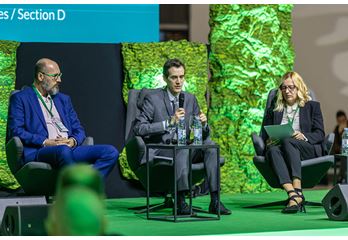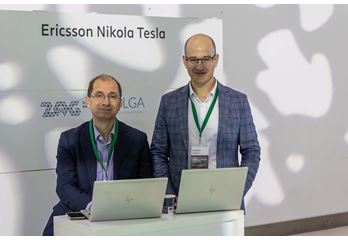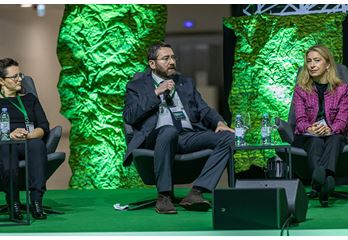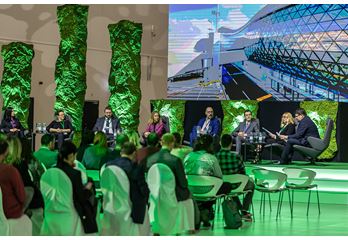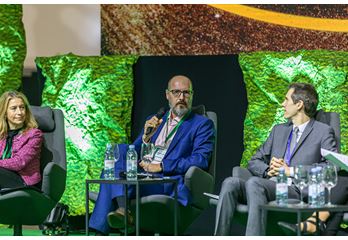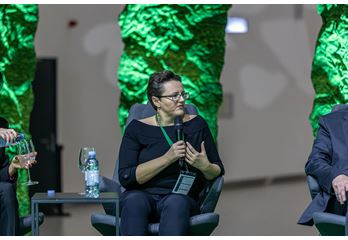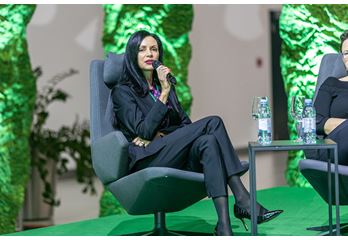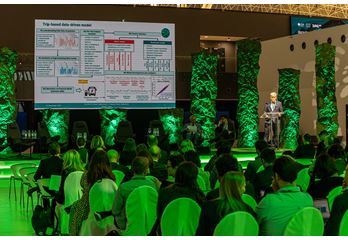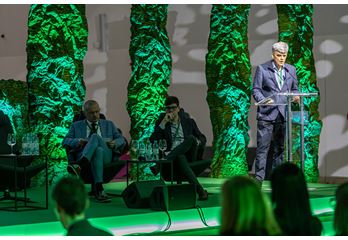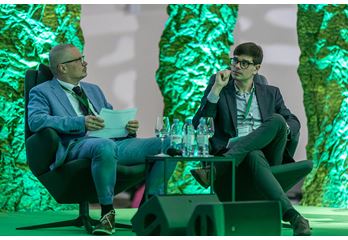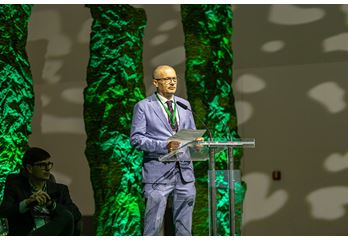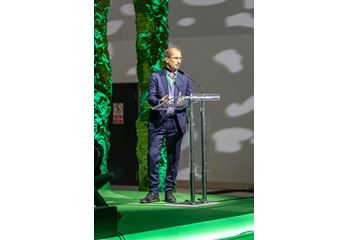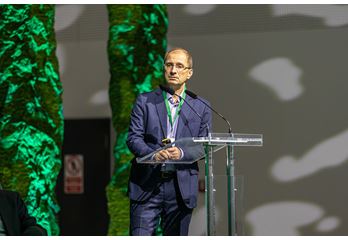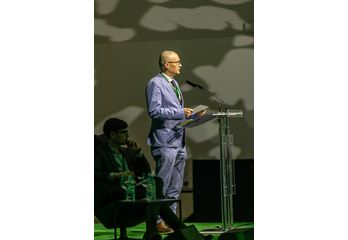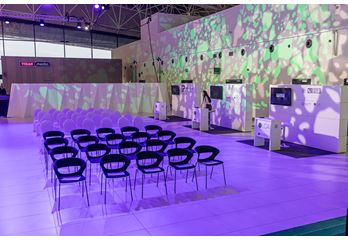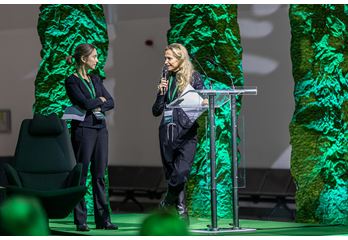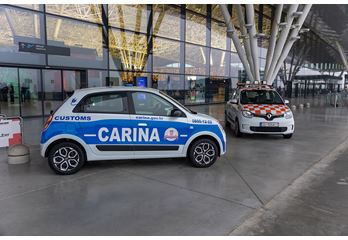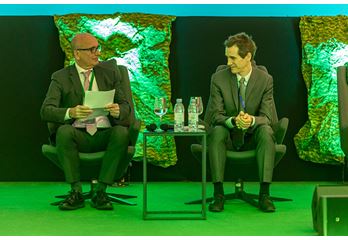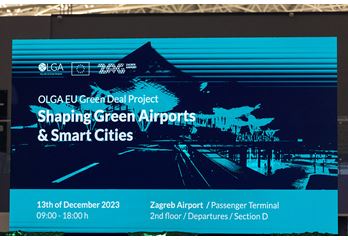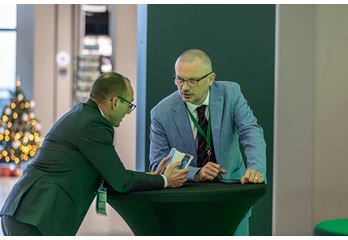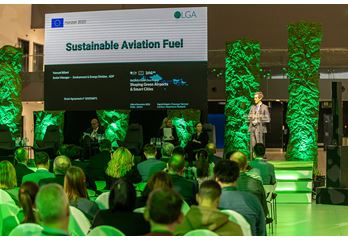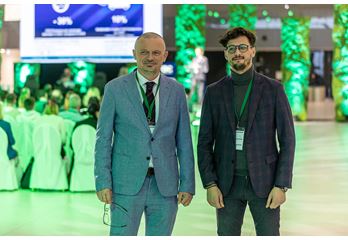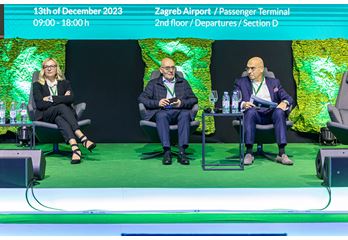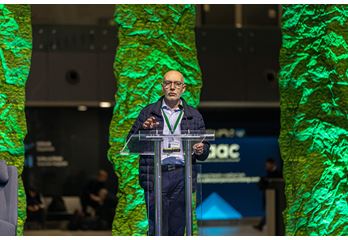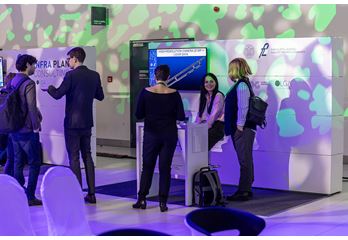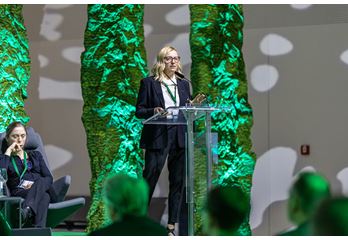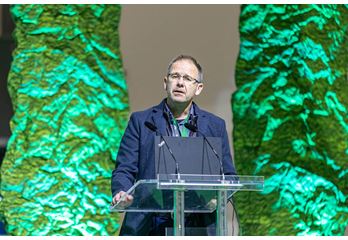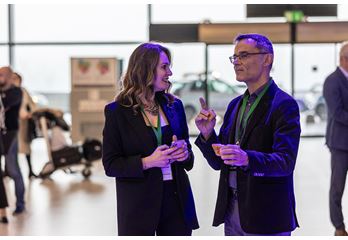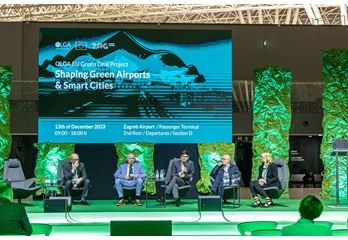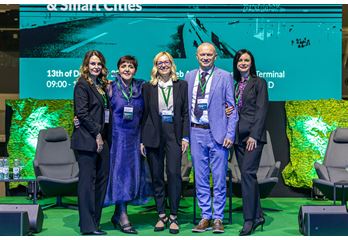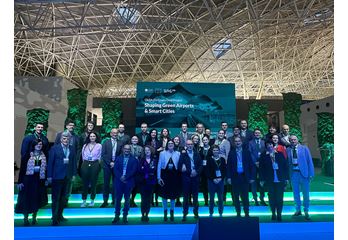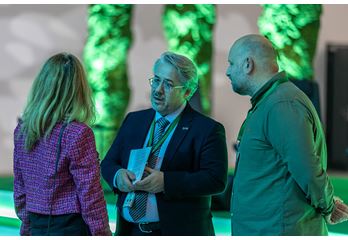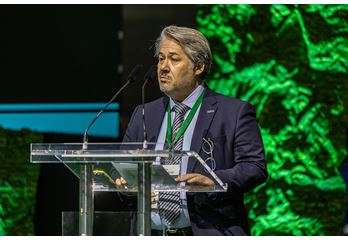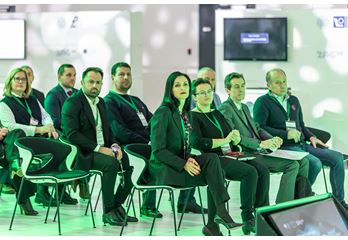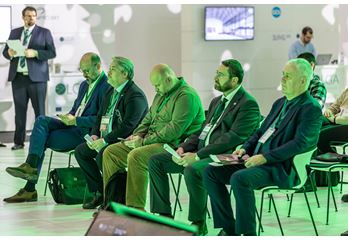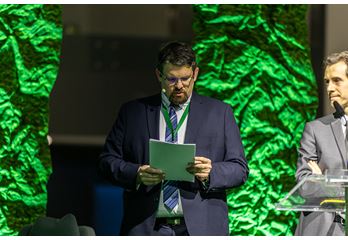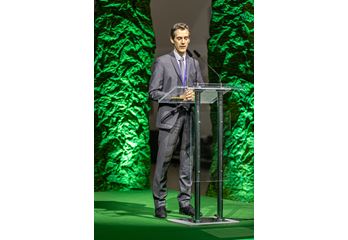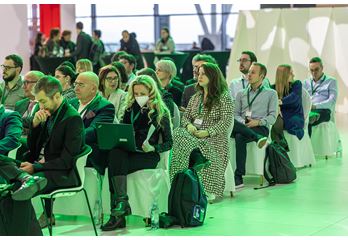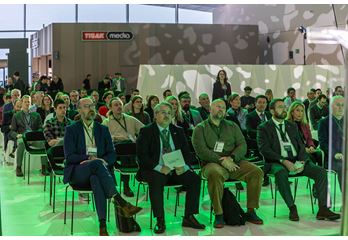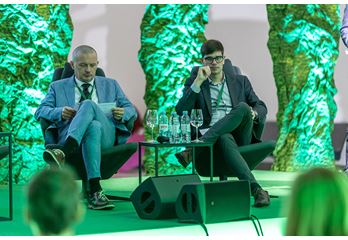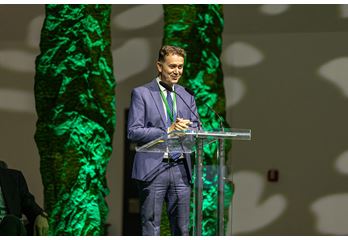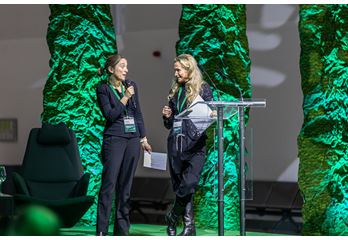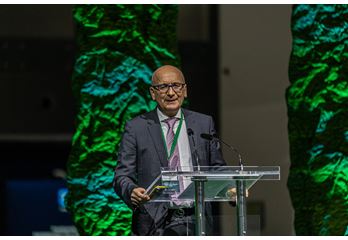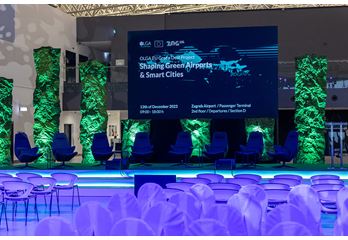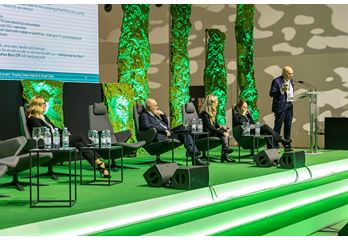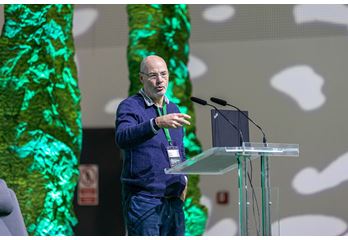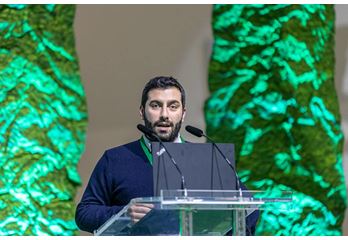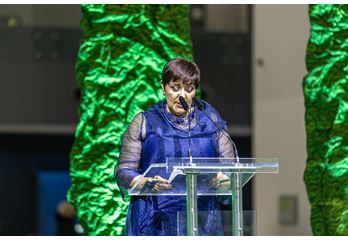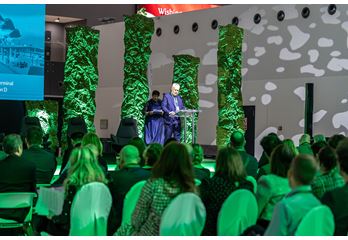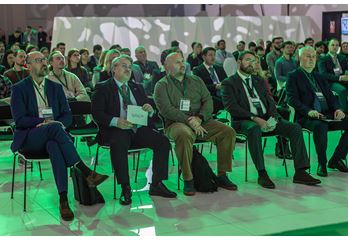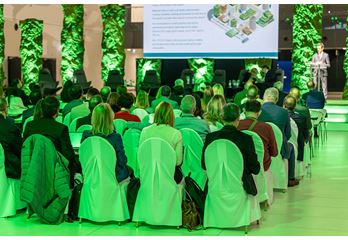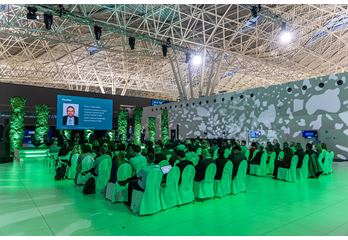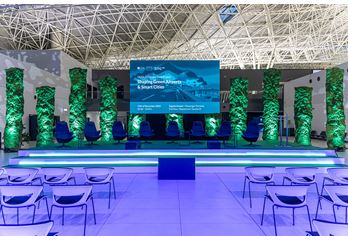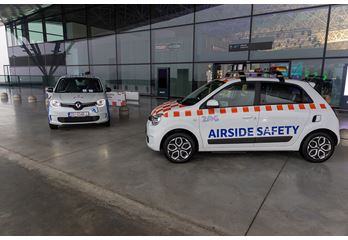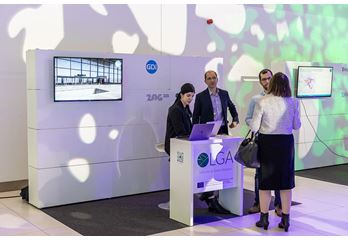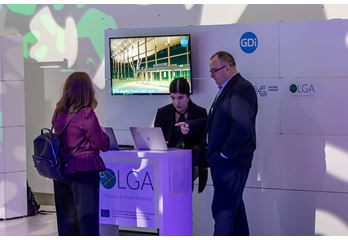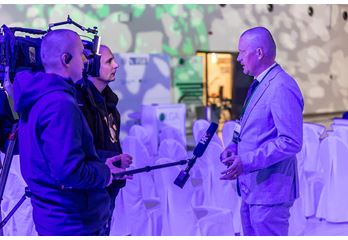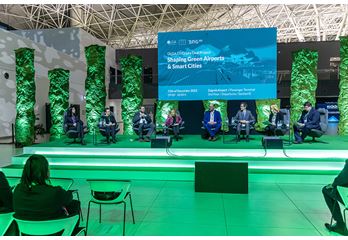Zagreb welcomed OLGA project with open arms on 13 December 2023 to host a high-level conference on the theme of green airports and smart cities. This event showed how European and local collaboration can transcend sustainability into an achievable goal. It is essential that airports, cities, and regions work together towards a shared vision, that of preserving the environment and improving the quality of life of local communities through smart mobility, energy efficiency and climate change adaptation measures.
As a key partner for the replication of the environmental innovations developed by OLGA, Zagreb Airport organised a public conference in the framework of the project, which gathered approximately 150 participants, such as city representatives, policymakers, academia as well as environmental and mobility experts. OLGA project is one of the largest innovation projects in Europe, probably the largest in Croatia, in terms of allocated European funds.
In the words of Huseyin Bahadir Bedir, President and CEO of Zagreb Airport, the participation of Zagreb Airport in the OLGA projects confirms our commitment to decarbonisation and to improving Croatia’s EU funds absorption efficiency. We are keen to adopt innovative solutions to enhance our environmental performance and to increase our collaboration with the industry, academia and the local communities. Our aim is to make Zagreb airport a shining example of sustainability and responsible business practice, as it is mirrored by our 2022 sustainability report.
Echoing the benefits of European-scale cooperation, Tomislav Mihotić, State Secretary, Ministry of Sea, Transport and Infrastructure of the Republic of Croatia, highlighted that OLGA is an excellent example of sharing experience and knowledge between different stakeholders in Europe and at the Ministry, we support the activities of Zagreb Airport in the field of sustainability ad environmental protection. We are glad that Zagreb Airport develops partnerships for environmental innovations, because these solutions are aligned with our national efforts for the improvement of the quality of life of local communities.
Regarding mobility, OLGA’s solutions are particularly applicable to the challenges encountered by the cities of Zagreb and Velika Gorica. In Croatia, smart mobility is only emerging now, with the ambition of fostering functional urban areas, based on multimodal and integrated transport systems. According to Marko Velzek, Assistant to the Head of the Office for the Municipal Self-Government, Transport, Civil Protection and Safety at the City of Zagreb, in Zagreb out of approximately 430 000 vehicles, 86% are personal cars. We need to find new ways to organise transport, to make it fast, reliable and efficient, in order to foster modal shift. In the city of Velika Gorica, as we learnt from Gordana Mikulčić, Senior Adviser for Urbanism and Environmental Protection at the City of Velika Gorica, the city plans to connect the outer part of Velika Gorica with the airport terminal and the main train station. Green infrastructure is a priority and we are taking the necessary actions to becoming a smart and climate neutral city.
Moreover, Branka Pivčević Novak, Head of Service for General Climate Protection Policy, explains that the climate crisis shows that our lifestyles and business as usual concept should be changed. Croatia is very ambitious in the climate change policies. In our national low carbon strategy, we analyse and identify several measures to decrease the environmental footprint. We have upgraded our national energy and climate plans to support the EU goals.
OLGA project indeed shows that EU is at the forefront of climate change adaption and this is certainly true for European airports and associated partners. Yannael Billard, OLGA Project Sponsor and Senior Manager in Environment and Energy at Groupe ADP, states that airports are highly complex ecosystems. To implement environmental innovations in an airport can be challenging, but it is not because it is difficult, that we should not do it. We must take action, and this is what we are doing through OLGA, thanks to its holistic approach. At the end of the project, the project will deliver around 35 concrete innovations that will be implemented at the OLGA airports, and which can be replicated worldwide. This marks the beginning of the transformation of airports into carbon-free mobility hubs, with the aim of achieving balance between economic, social and environmental goals.
More info about OLGA project: https://www.olga-project.eu/
As a key partner for the replication of the environmental innovations developed by OLGA, Zagreb Airport organised a public conference in the framework of the project, which gathered approximately 150 participants, such as city representatives, policymakers, academia as well as environmental and mobility experts. OLGA project is one of the largest innovation projects in Europe, probably the largest in Croatia, in terms of allocated European funds.
In the words of Huseyin Bahadir Bedir, President and CEO of Zagreb Airport, the participation of Zagreb Airport in the OLGA projects confirms our commitment to decarbonisation and to improving Croatia’s EU funds absorption efficiency. We are keen to adopt innovative solutions to enhance our environmental performance and to increase our collaboration with the industry, academia and the local communities. Our aim is to make Zagreb airport a shining example of sustainability and responsible business practice, as it is mirrored by our 2022 sustainability report.
Echoing the benefits of European-scale cooperation, Tomislav Mihotić, State Secretary, Ministry of Sea, Transport and Infrastructure of the Republic of Croatia, highlighted that OLGA is an excellent example of sharing experience and knowledge between different stakeholders in Europe and at the Ministry, we support the activities of Zagreb Airport in the field of sustainability ad environmental protection. We are glad that Zagreb Airport develops partnerships for environmental innovations, because these solutions are aligned with our national efforts for the improvement of the quality of life of local communities.
Regarding mobility, OLGA’s solutions are particularly applicable to the challenges encountered by the cities of Zagreb and Velika Gorica. In Croatia, smart mobility is only emerging now, with the ambition of fostering functional urban areas, based on multimodal and integrated transport systems. According to Marko Velzek, Assistant to the Head of the Office for the Municipal Self-Government, Transport, Civil Protection and Safety at the City of Zagreb, in Zagreb out of approximately 430 000 vehicles, 86% are personal cars. We need to find new ways to organise transport, to make it fast, reliable and efficient, in order to foster modal shift. In the city of Velika Gorica, as we learnt from Gordana Mikulčić, Senior Adviser for Urbanism and Environmental Protection at the City of Velika Gorica, the city plans to connect the outer part of Velika Gorica with the airport terminal and the main train station. Green infrastructure is a priority and we are taking the necessary actions to becoming a smart and climate neutral city.
Moreover, Branka Pivčević Novak, Head of Service for General Climate Protection Policy, explains that the climate crisis shows that our lifestyles and business as usual concept should be changed. Croatia is very ambitious in the climate change policies. In our national low carbon strategy, we analyse and identify several measures to decrease the environmental footprint. We have upgraded our national energy and climate plans to support the EU goals.
OLGA project indeed shows that EU is at the forefront of climate change adaption and this is certainly true for European airports and associated partners. Yannael Billard, OLGA Project Sponsor and Senior Manager in Environment and Energy at Groupe ADP, states that airports are highly complex ecosystems. To implement environmental innovations in an airport can be challenging, but it is not because it is difficult, that we should not do it. We must take action, and this is what we are doing through OLGA, thanks to its holistic approach. At the end of the project, the project will deliver around 35 concrete innovations that will be implemented at the OLGA airports, and which can be replicated worldwide. This marks the beginning of the transformation of airports into carbon-free mobility hubs, with the aim of achieving balance between economic, social and environmental goals.
More info about OLGA project: https://www.olga-project.eu/


